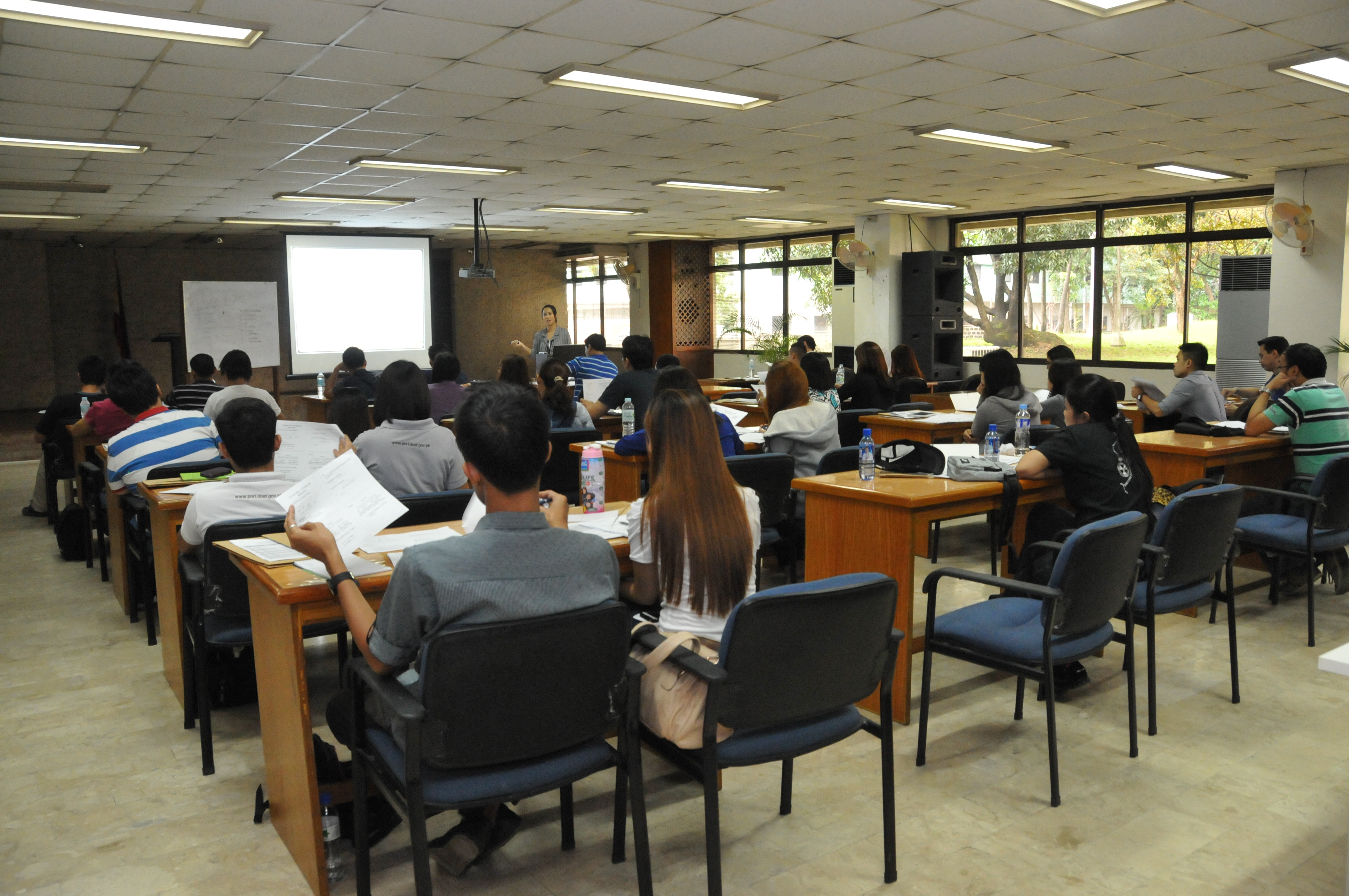Scientists discover nuclear signals that could possibly mark the start of the Anthropocene
- Details
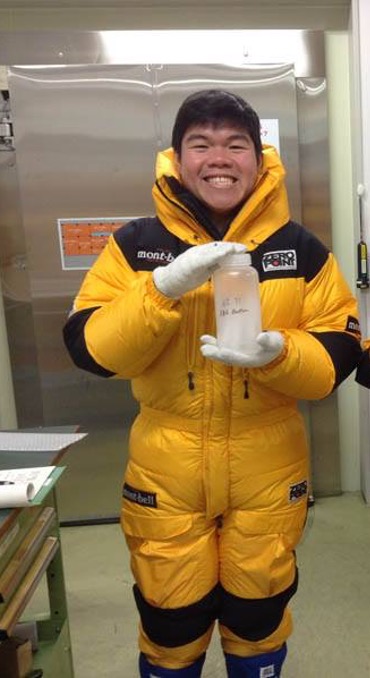

Left: DOST-PNRI’s Dr. Angel Bautista VII presents a segment of the ice core containing the I-129 radionuclide signals which they propose as the most probable golden spike indicator of the Anthropocene epoch
Right: Sampling the ice core at the SE Dome site in Greenland
Scientists discover nuclear signals that could
possibly mark the start of the Anthropocene
When did human activities start affecting the earth permanently on a planetary scale? This proposed new period of such human activities is called the Anthropocene epoch. This period, and all other periods such as the Jurassic Age, has a start flag called the “golden spike,” an event marker that signals a tremendous physical, chemical, or biological change across the Earth.
In a new study by DOST-Philippine Nuclear Research Institute, The University of Tokyo, RIKEN, Hirosaki University, and Hokkaido University, researchers propose that the beginning of the Anthropocene, or its “golden spike,” is best recorded as nuclear bomb peaks.
In particular, the scientists found the peaks of the radionuclide iodine-129 or I-129 found in an ice core at the Greenland Southeast Dome site as an “excellent candidate for the Anthropocene period’s golden spike.”
PNRI offers CPD-accredited virtual course on induced genetic variability in plants
- Details
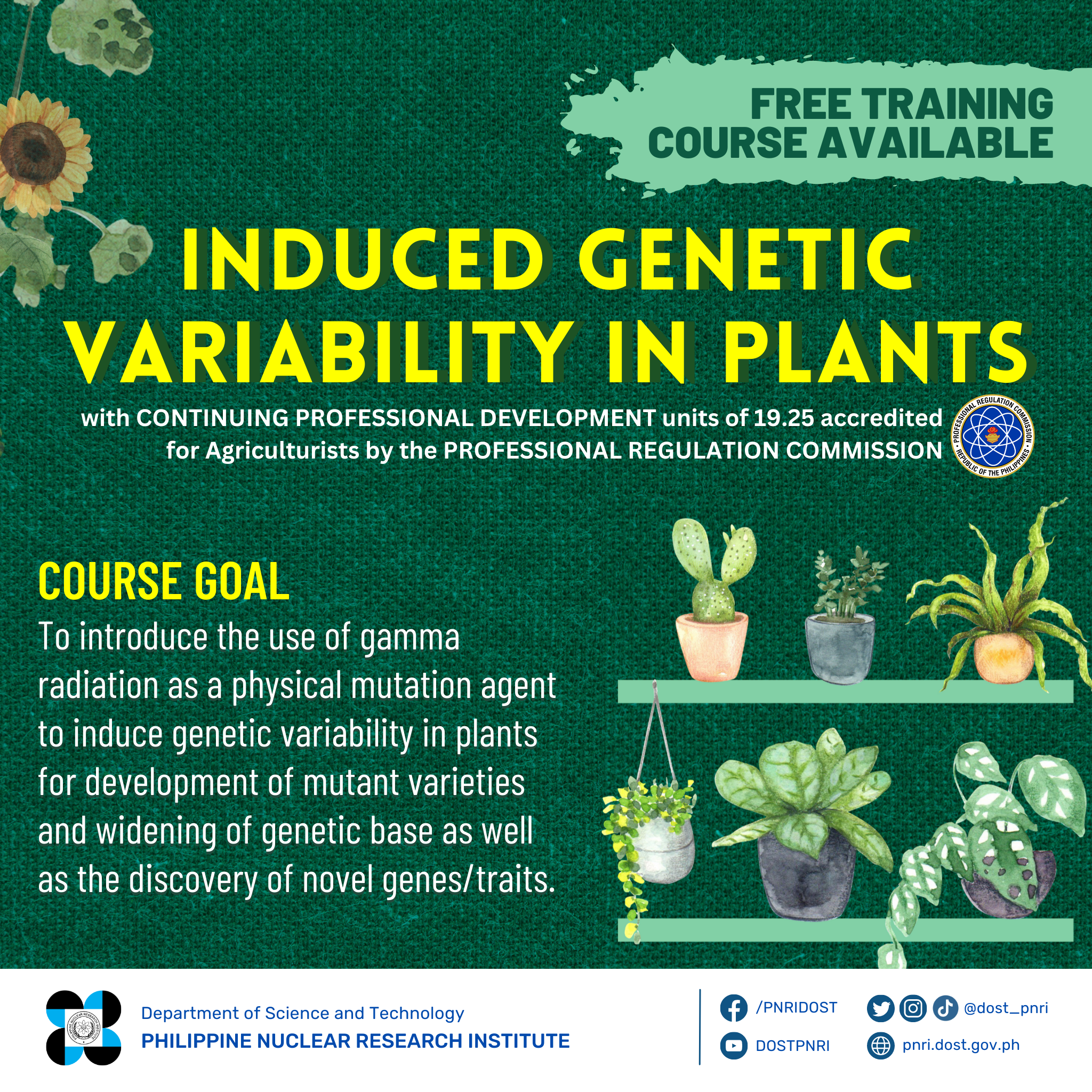
PNRI offers CPD-accredited virtual course on induced genetic variability in plants
The Philippine Nuclear Research Institute of the Department of Science and Technology (DOST-PNRI) will be conducting the Virtual Training Course on Induced Genetic Variability in Plants via Zoom on June 8 to 30, 2023.
The course will introduce the use of gamma radiation as a physical mutation agent to induce genetic variability in plants for the development of mutant varieties, widening of genetic base, and discovery of novel genes.
Participating agriculturists who are licensed by the Professional Regulation Commission will receive 19.25 Continuing Professional Development (CPD) points from the course, as approved and indicated in the CPD Program Accreditation PTR-2019-254-1007.
Read more: PNRI offers CPD-accredited virtual course on induced genetic variability in plants
PNRI bares nuclear technology trainings for 2023
- Details
PNRI bares nuclear technology trainings for 2023
The Nuclear Training Center of the Department of Science and Technology – Philippine Nuclear Research Institute (DOST-PNRI) announces trainings available to the public for 2023.
The classes, to be conducted face-to-face, include the following:
Radiation Safety Course – Commercial Sale Involving Radioactive Materials and Low Activity Sources (16 hrs, May 2-4 and Aug 15-17) is designed for individuals involved or will be involved in the acquisition and possession of radioactive materials (RAM) and devices containing RAM that are for sale and distribution. It also caters to those involved in the use of Category 5 radioactive sources, such as Ni-63 in ECD, XRF analyzers, calibration/standard sources used in research and education.
Course on Medical Use of Radioisotopes (160 hrs; May 8-Jun 30; Sep 4-Oct 27) aims to acquaint workers in the medical sector on the advantages and applications of radioisotopes in the medical field, such as nuclear medicine, teletherapy, brachytherapy, blood/ tissue irradiators. Target participants include nuclear physicians, biological scientists, medical and radiological technologists, and nuclear pharmacists.
Course on Radioisotopes Technology (160 hrs; May 8-Jun 30) is designed to acquaint new PNRI employees and other interested individuals on the advantages and applications of radioisotopes.
IAEA, PNRI hold Nuclear Law Workshop
- Details
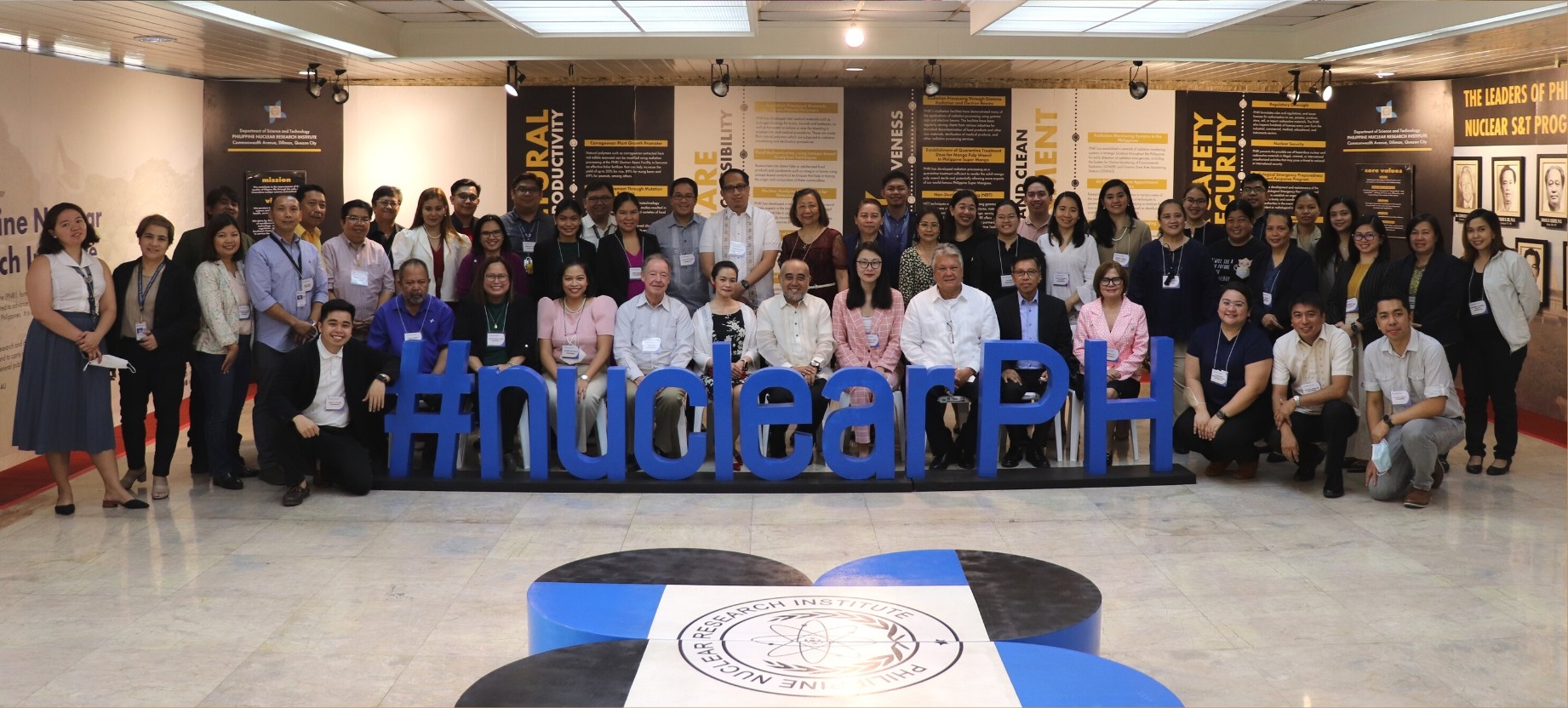
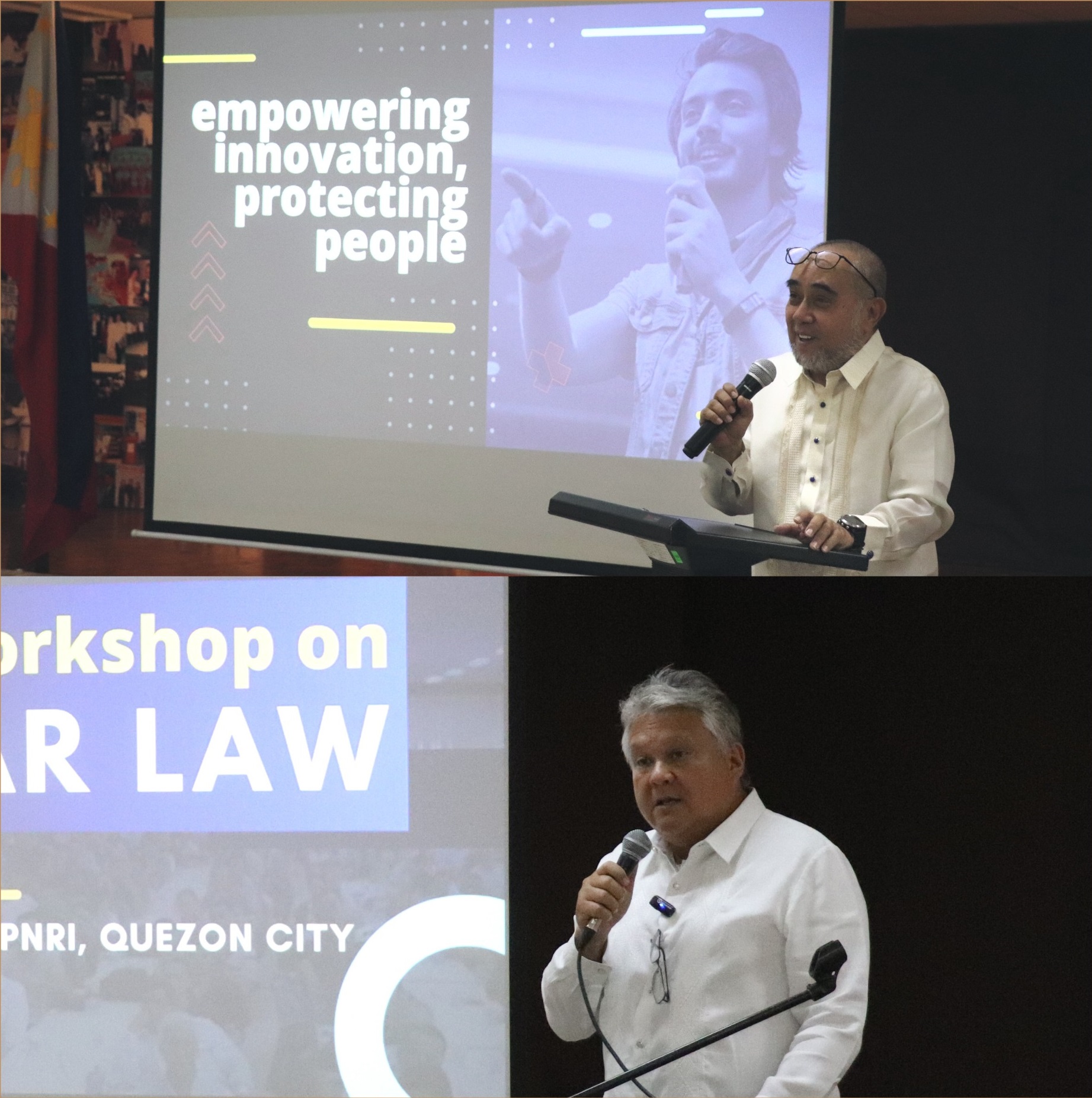
IAEA, PNRI hold Nuclear Law Workshop
Advancing the vision for a nuclear future in the Philippines, the International Atomic Energy Agency (IAEA), together with the Department of Science and Technology - Philippine Nuclear Research Institute (DOST-PNRI), led the Nuclear Law Workshop which starts today at the PNRI Auditorium in Quezon City.
The workshop aims to capacitate the participants in the area of nuclear law, including safety, security, safeguards and civil liability for nuclear damage. Participants, by the end of the workshop, are expected to gain a solid understanding of the aspects of nuclear law.
Participating in the workshop are representatives from the Senate, House of Representatives, Presidential Legislative Liaison Office, Department of Justice, Bataan Nuclear Power Plant, Alpas Pinas, DOST-Department Legislative Liaison Office, DOST-Philippine Institute of Volcanology and Seismology, Department of Trade and Industry, Department of Foreign Affairs, Department of Health-Food and Drug Administration, Department of Environment and Natural Resources, and National Power Corporation.
This national Nuclear Law workshop will run until May 05, 2023.


























